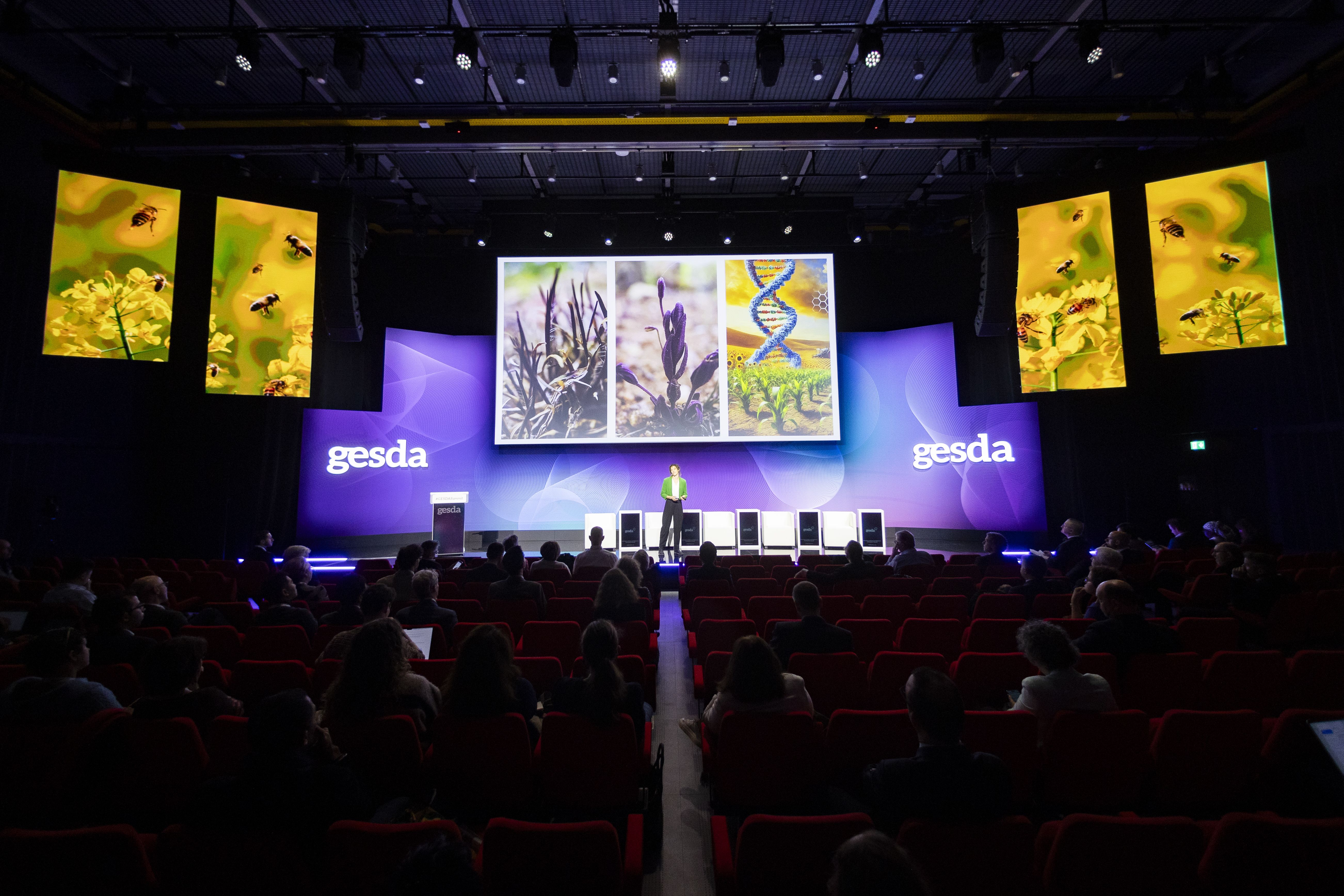Eco Augmentation Highlight I: As climate change intensifies and extreme weather events become more frequent, the pressure on global food systems escalates. How are advances in synthetic biology, genetic engineering, and artificial intelligence being deployed to augment ecosystems for climate resilience and food security?
The following is the rapporteur report of an expert discussion held during the 2024 GESDA Summit. The author is a Villars Fellow.
Ideas from the Speakers
The session introduced the study of resurrection plants as a compelling example of the increasingly relevant use of nature-based solutions as a framework to address what is arguably the most pressing threat to nature itself: climate resilience and food security. As another panelist later noted, the most visible effects of climate change are currently seen in plant growth, evident in the surging prices of olive oil and coffee, or the premature blooming of the sakura.
The first speaker’s insightful comments extolled the incredible, often overlooked potential of resurrection plants and their practical applications. In particular, their desiccation tolerance – their ability to enter a dormant state during extreme dryness and then revive when rehydrated – could have extraordinary implications for agriculture. If this trait could be transferred to crops, it could help mitigate the effects of climate change on food systems. Additionally, the plants’ stress indicators could improve the management of farms. This might even be achievable without extensive genetic modification through the use of the plants’ microbiomes to develop biostimulants. However, this application was deemed a longer-term solution due to existing scientific limitations, the complexity of genome research, and the challenges posed by interwoven policy frameworks.
In the shorter term, it was suggested that xeropreservation could be transformative. This technology, derived from resurrection plants, enables the dry storage of medicines and even whole cells and tissues (such as embryos, seeds), which would benefit both conservation and pharmaceuticals. Taking an ambitious view of the distant future, the speaker speculated about the use of this technology to biopreserve entire organisms, potentially aiding advances in medicine, agriculture, and even interplanetary travel.
An area of focus was the contentious role of genetically modified organisms (GMOs) and the ongoing misalignment between science and policy or diplomacy concerning them. In recalling growing nutrient deficiency crises in the developing world, an expert echoed the speaker’s demonstration of the value of GMO crops and further elaborated on how policy, such as the application of the precautionary principle in Europe, has not kept pace with progress in this area. To properly integrate GMO technology, another speaker pointed to the need for trust-building governance and policies, noting that change happens at the rate of trust.
This notion of trust resurfaced in the panelists’ comments on the importance of equity and inclusion in driving fair and rapid progress, while democratizing science. A key element of this, they argued, involves empowering voices from the Global South and those historically marginalized. Currently, it was noted, research in the Global South is often led by researchers from the Global North in ways that are not inclusive.
Interventions must be contextualized for, and by, local contexts and local people. According to one speaker, researchers and regional stakeholders can be encouraged and empowered to respond to global tipping points by grounding explanation and response in a local understanding of regional needs. This quickly became clear in a shared example in which sorghum was bioengineered to be shorter after farmers had stopped planting it because insurgents were using the tall crops as hiding places. Even if the sorghum was desiccation-tolerant, it would not be adopted in a region plagued by guerilla warfare if it remained too tall, highlighting the importance of context-specific needs. By linking scientific research to such local assessments, an ecosystem of trust can be fostered. Inclusive and context-specific efforts can also be achieved through grassroots collaboration; one speaker cited the Water and Life Interface Institute as an example.
Gender inclusivity was also addressed in the dialogue. One speaker said that diplomacy could help establish a level playing field, while another called on the Global North to take the initiative to provide educational opportunities for young women worldwide, thereby enabling broader engagement. At the same time, another speaker stressed the importance of a gender-responsive agricultural system, indicating that women have distinct needs; if policies fail to take these into account, individual food security cannot be achieved.
The panelists also discussed humanity’s overreliance on a few staple monoculture crops. One expert highlighted the critical role of science in making these crops more resilient to abiotic stresses, while another argued for parallel investment in the systems supporting underused crops. This could help address nutritional deficiencies, improve resilience to abiotic stresses, and diversify agro-ecosystems to mitigate ecological consequences.
Finally, the panelists spoke broadly about the need to shift the paradigm within the scientific, diplomatic, and industrial food landscape. A key part of this involves bridging the silos between academia and industry. For example, one panelist remarked that plant transformation remains a major bottleneck because it cannot be tackled by individual labs alone; joint centers are required to address the issue. Similarly, she said that research funders should provide more inclusive grants that extend beyond scientific disciplines and national boundaries. Frustration was also expressed over the fact that much research remains confined to the lab, highlighting the need for a shared method of dialogue and a common vocabulary to develop business models that are meaningful and accessible to end users.
To conclude, the panelists each offered a recommendation for further reading. Their selections included; the Building an Economically Sustainable, Integrated Cassava Seed System (BASICS) project, which aims to strengthen all components of the cassava seed value chain in Nigeria and elsewhere on the African continent; the Degrees Initiative, which brings together early-career and experienced researchers to foster collaboration; and the article “A critical analysis of plant science literature reveals ongoing inequities,” which examines global participation and gender equality in the field.







